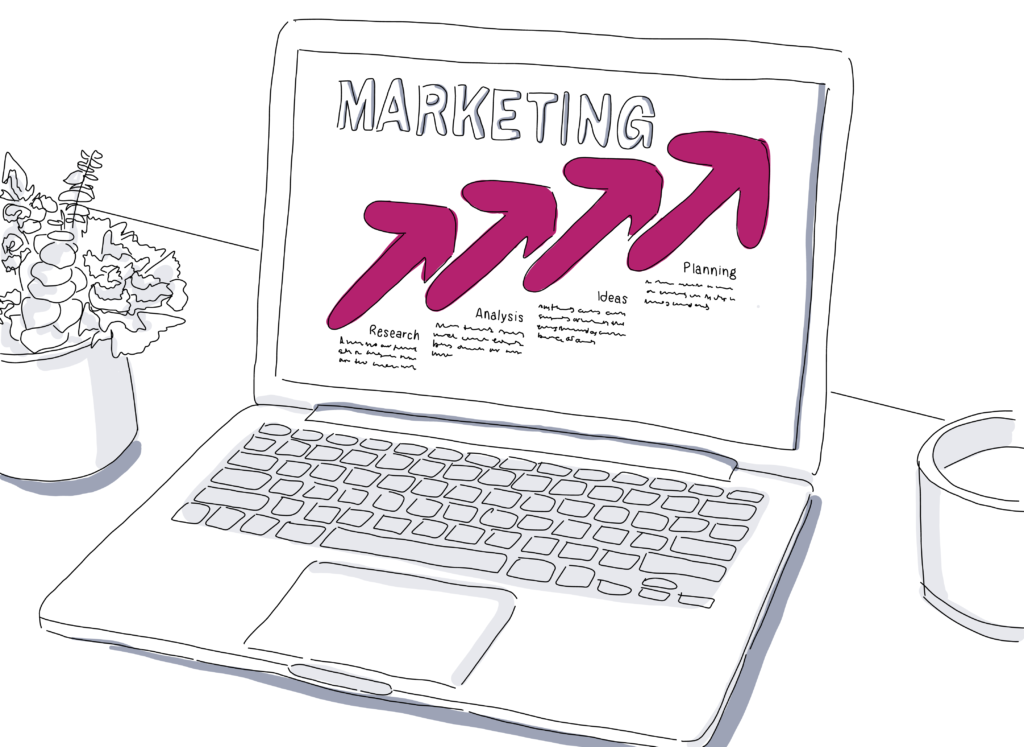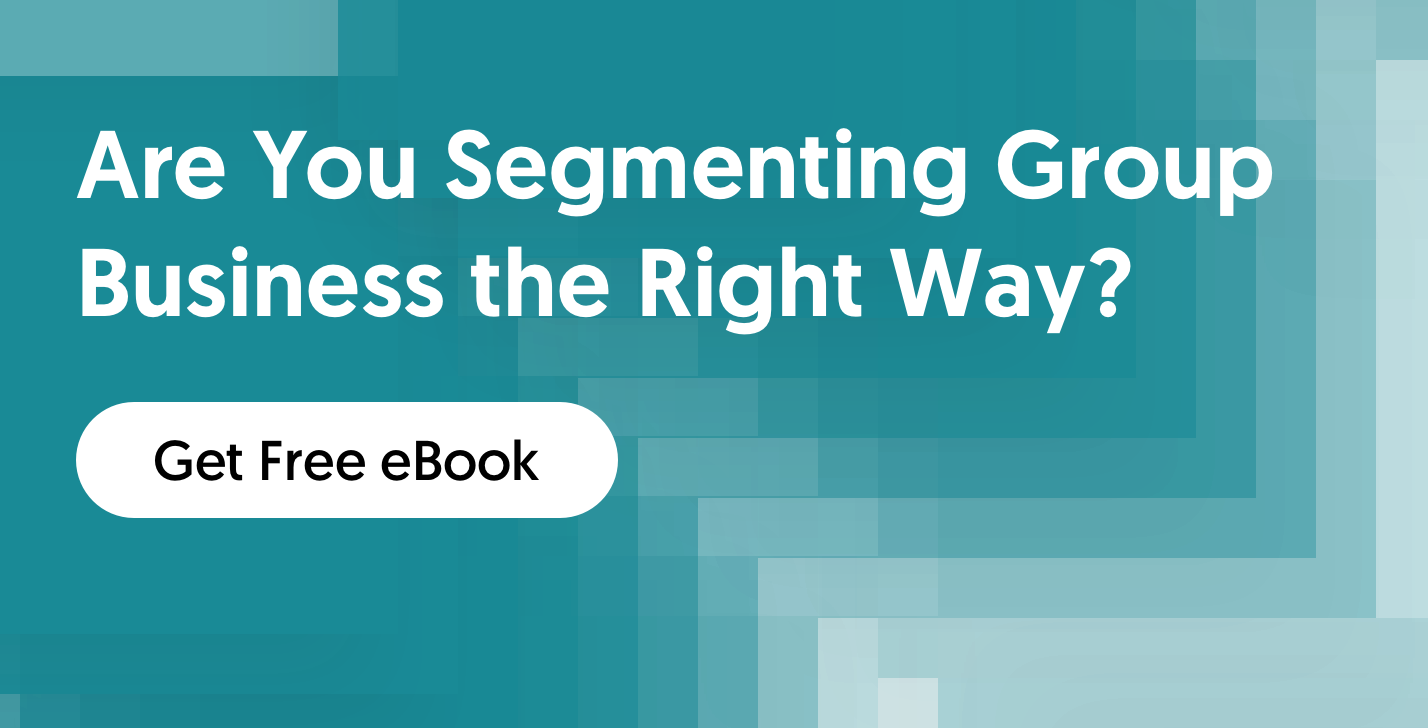
Tech Thursday: The Step-By-Step Marketing Automation Guide for Group Sales
How long does it take your hotel to close a sale for a group booking? How many employee hours are spent on that sale? Do you wish you could speed up and streamline that process?
While group bookings offer an enormous opportunity for additional revenue, the group sales process can be difficult and time consuming. By automating some of the steps of your sales process, you can streamline and personalize the interactions you have with potential customers, and ultimately close more business. Read on to learn about marketing automation, and how it can boost your hotel’s group sales.
What is sales and marketing automation?
Automation can sound like a daunting task, but in reality it is a simple and powerful way to increase group bookings, customer satisfaction, and additional revenue. Put simply, marketing automation is using technology to engage with your customers across multiple digital channels, automate manual processes, and track results.
Why automation?
Although marketing automation is a powerful tool, many hotels have been slow to adopt automation technologies. This is often because of concerns about training staff in the new technology, setup time and costs, and ROI. While marketing automation won’t do all of the work for you, it does help you automate repeatable, redundant tasks and gives you the time to focus on areas where your personal attention will maximize conversions. There are many other benefits to automating parts of your group sales process:
- Personalized content. Automation gives you the power to tailor your outreach to your customer segments and their needs. This means your potential guests will get the right content, in the right format, at the right time – all without you pushing a button.
- Less time spent on routine marketing tasks. It’s no secret that conversions are boosted by personalized attention, but it can be tough to find the time for engagement with prospects. Automating routine tasks frees up valuable time for your staff, so that they can focus on building relationships.
- Leverage your data. Your group sales CRM has a wealth of data about the groups that visit your hotel, and can help you to make effective decisions about outreach. Segmenting your audience and automating the routine parts of your outreach allows you to use that data in powerful ways.
- Measure your success. By running ad experiments simultaneously, you can see which of your efforts are having the most impact for a given customer segment. Keep optimizing until you find the right messaging for each type of group that comes to your property.
The benefits of automation are clear, but beginning to automate your hotel’s group sales process can be a daunting task. We’ve broken it down into a few key steps to get you automating in no time.
1. Map your buyer’s journey
In order to provide relevant content for your potential guests as they consider your property, you first have to know how they make their buying decisions. A buyer’s journey is a marketing framework used to understand how your customers move through the decision making process, from first identifying their need to eventually choosing a solution that solves their problem.
According to a study by CEB, 57% of the buyer’s decision is already made before they ever reach out to sales. Because so many people are making decisions without your direct involvement, it pays to think about where they are finding their information and strategically place content for them to find.
Mapping the journey that event planners use when making their buying decisions can be an involved process, but for automation purposes you can focus on writing down a few simple steps that your buyer takes. Take note of:
- Where do event planners go when they first realize they have a need? What steps do they take before looking for individual properties that might meet those needs?
- How does an event planner or group organizer find you? What channels do they usually use? Do they go straight to an OTA, or social media, or talk to other event planners?
- What are the first questions that planners have about your property? Where do they go for answers? Do they visit your website? Read more on an OTA?
- How do planners first get in touch? Often planners will first reach out via a Call-To-Action (button) on your website, filling out a form on a landing page, or emailing the property directly.
- What questions do planners have along the way? How can you answer them as they come up?
Once you have answered these questions, you should have an idea of the places where your content needs to appear (channels), and the types of information that you need to provide (content).
2. Segment your audience
Once you have an idea of how event planners and group organizers find you, it helps to break down those groups into different types. The content you provide for sports teams will of course be very different than what you provide for weddings, family reunions, or corporate events. Pick 3-5 main groups that often stay at your hotel, so that you can craft a strategy for each. Segmenting your audience this way allows you to provide tailored content to different groups, and is one of the main benefits of automation.
For each group, consider the types of information that they will find most engaging, where they tend to find that information (channels), and when in the buyer’s journey they are looking for each type of information. We will use a wedding as an example of one type of group that might book at your property.
3. Decide which channels to automate
You should now have a pretty good idea of the groups that you will create content for, and what their decision making process looks like. You now need to decide where you will post each type of content.
For our example, you may have noticed that your wedding groups start their research process somewhere visual and inspirational, like Instagram or Pinterest. They then begin to brainstorm what they want in a wedding venue, and head to Facebook and wedding forums to chat about their options. Once they narrow down their venue options, they head to individual venue websites or an OTA to get more information and look at pictures. When they have questions, they look on the website or maybe reach out to someone on the sales team. Finally, when they are ready for pricing information, they begin a conversation with someone in sales, and largely keep in touch with that person via email.
This buyer’s journey gives you lots of opportunities for automation. You can schedule content for wedding groups to be distributed automatically on social media channels like Instagram, Pinterest, and Facebook. You can update website content automatically whenever you make changes to hotel information in your database. You can automate routine emails that you send to customers throughout the booking process.
Here are a few other ways that hotels automate their marketing and sales:
- Sending out automatic confirmation emails for groups, with tailored information relevant to the group’s booking
- Retargeting groups that have expressed an interest via your website
- Asking for reviews during or after a group’s stay
- Offering tailored promotions or discounts for specific types of groups
- Providing information relevant to the group before their stay, like weather forecasts, packing lists, and answers to common questions

4. Set up your campaigns
After deciding which channels to focus your automation on, you’ll need to set up your campaigns. There are many tools that can help you do this, from incredibly robust all-in-one solutions to smaller single-use-case options:
- Marketo and Eloqua are robust all-in-one suites that case accomplish almost any automation goal across any number of channels. These are best for large marketing teams with a defined channel strategy.
- Buffer lets you save news articles or other content into a feed, and then sends content from the feed out to various channels on a set schedule
- Hootsuite is a popular tool for scheduling social media content, and has a bulk option for scheduling lots of posts at once
- CoSchedule’s automation tool offers a great solution for planning and strategizing social media content in advance. By mapping out all of your content, including what you’ll say and when, it’s easy to get a bird’s eye view of your end-to-end social production.
- AdRoll is one of the best known digital advertising automation tools. Their software makes it simple to run ads across display, social media, and email. They also offer retargeting campaigns that pack a serious punch, so you can stay top of mind with new prospects and re-engage inactive customers.
- Zapier is a powerful tool for connecting different pieces of your puzzle together, and is highly customizable. It works by creating if this, then that type formulas, and can integrate social media, email, and your website seamlessly
- Email providers like Mailchimp offer the option of sending out repeat emails on a schedule, or based on events (like a planner filling out a form on your website)
Talk with your tech team to see what options are available to you, and what systems might already be in place. They will likely be able to help you decide how to add automation into your existing workflow.
5. Measure your impact
To truly get the benefits of automation, you will need to track which of your actions are having an impact. Using a CRM system, like Social Tables’ group sales and catering CRM software, lets you keep track of your leads as they come in and has powerful reporting tools to see which of your efforts are working. Reports from your CRM and website analytics can tell you the story of which of your automation efforts are working, and where to spend your time in the future.
As with any marketing or sales effort, keep testing and optimizing until you find the right mix of strategies for your property and your audience. The process is never done, but automating some of the pieces of your group sales process will give you the time to keep testing and finding new approaches to improve group sales.
Ready to leverage a CRM to improve your group bookings? Check out a demo of Social Tables’ group sales and catering CRM software. You can also learn the most effective ways to maximize group revenue with these 4 tips for venue marketing, or discover how to draw more wedding business with 8 ways to make your wedding-friendly hotel stand out.

